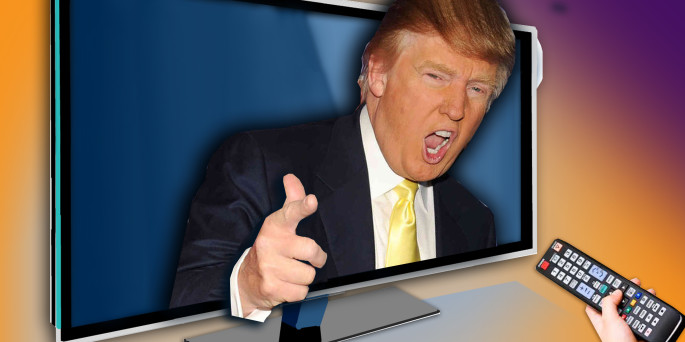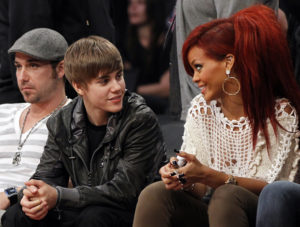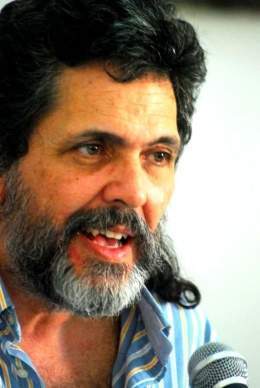
What do Justin Bieber, Rihanna and Trump have in common?
WASHINGTON, D.C. – The imminent choice of Donald Trump as the Republican candidate for president of the U.S. got me thinking about those ‘famous’ pop music characters, Justin Bieber and Rihanna. Odd as it may appear it reminded me of a presentation last February by Abel Prieto, former Minister of Culture and currently advisor to Cuba’s president Raul Castro. During that presentation Prieto spoke of those two ‘famous’ people, although not about Trump. I just added the presumptive Republican nominee to the presidency to Prieto’s idea.
[To read the Prieto presentation (in Spanish) titled “Notes on today’s cultural crisis: A view from Cuba”, click here (“Notas sobre la crisis cultural de hoy: una mirada desde Cuba,”) click here.]
The readers no doubt wonder what Trump’s nomination has to do with a presentation about culture in Cuba, or with Bieber and Rihanna. In fact, it is no mystery: the cultural crisis that Prieto describes is manifest in politics, and especially in the Trump phenomenon.

Before answering the question, however, I must make clear that to assert that the Trump phenomenon is primarily a cultural one would be ridiculous. On the contrary, it is infinitely more complex, with deep historical, socio-economic and political roots. These include the way he takes advantage of the fear experienced by the middle and working classes, who face a substantial economic decline and great uncertainty, as well as their fear of the ‘other,’ whether it is in the form of an Afro-American president, an undocumented Mexican, or a Muslim immigrant, to cite only some of many possible examples. In this commentary, however, I place these central issues aside to comment on the cultural dimensions of the Trump phenomenon. Even if they are not the main aspect, they certainly reflect a great deal about the importance of the so-called ‘famous’ in social and news media today throughout the world.
A key theme in Prieto’s presentation is that “we are living through a profound cultural crisis” which in part is manifested in “a cult of the so-called ‘famous’,” and that the “new information and communication technologies…. play a substantial role as a catalyst of that cult.” Prieto cites the impressive numbers that Bieber collects in social media—he is second with millions of Twitter followers who stay abreast of each detail of his personal life, even his change in hair style; or Rihanna, who was at the time the first in “likes” in Facebook. Such is the ‘fame’ of those who dominate social media and even the news in what is called culture today.

But isn’t Trump also one of those ‘famous’ ones, created to a great extent by the “hegemonic entertainment industry?” Trump is far more than another multi-millionaire; there are hundreds like him that are virtually unknown. On the contrary, Trump is a ‘famous’ figure thanks to his two reality shows, which glorify cutthroat competition and the lust for riches—not to mention his arrogance, braggadocios, self-promoting prowess with women, and so many other aspects of a ‘fame’ created by the web and a well-orchestrated media and publicity production. A ‘fame,’ quoting Prieto again, that is due to a “deluge of messages, in appearance unrelated, yet of an extraordinary coherence.”
Prieto also reminds us that Forbes magazine named Rihanna as one of the “most powerful” women in the world, and Shakira as “one of the 100 most influential women on the planet.” Hasn’t something similar occurred with Trump, who long before he went in search of the nomination was presented by the new media as influential, and who has received from that media the ‘fame’ of being a great entrepreneur, a wise expert about mass opinion, and, above all, “macho,” powerful, decisive and even sexy?
And as Prieto also comments, “Sometimes it appears that the managers of [the ‘famous ones’]….suggest every month….[and] manufacture an incident, a small scandal to enhance their legend and grow their popularity.” Isn’t this similar to Trump’s electoral tactics, when he “manufactures” an “incident” every week or practically every day with some pronouncement or insult?
Prieto also tells us that “the trivial acquires a gigantic weight in the logic of the ‘famous’ ones.” Can’t we say that it is the same for Trump? His mantra is “Make America Great Again.” He also promotes a wall that will never be built, asserts that he will finish the Islamic State in a few months, and insists that the world will “respect” the U.S., to name just a few. Trivial “solutions” for complex issues.
Not to mention his string of insults against opponents, newscasters, leaders in his party and many others. Trivial insults such as mocking “little Marco” or ridiculing the supposed ill manners while eating of his opponent Kasich from Ohio. Once again, fame based in part on frivolity.
Prieto’s presentation also reminds us that it “would be absurd to think that those adolescents who build altars at home [to Bieber]….are making use of their freedom to elect….It wasn’t them….it was the publicity professionals in the laboratories of the ‘famous” who drove them to such delusions.” And the delusions of Trump fans? Are they the result of real ‘freedom’ or just manipulation by a publicity apparatus and the constant repetition by the mass media of his pronouncements, however trivial they may be?
One of Prieto’s main theses is that “the grave crisis in the culture….[amplifies]….everything at an extraordinary speed….in the service of consumerism, of the hegemonic entertainment industry, and of the cult to the so-called ‘famous’….where frivolity gains more and more space.” I will leave it to the readers to decide whether the Trump phenomenon, as I have argued, is partly an example of this “cult.”
It is why I urge any of our Spanish readers to go directly to the essay, which goes far beyond the narrow scope of this article.


